Taiwan leader says armed conflict with China 'absolutely not an option'
China’s threats of military action against Taiwan are “absolutely not an option” and will only push the two sides "further from each other,” Taiwanese President Tsai Ing-wen said on Monday.
Addressing the self-ruled island's National Day, Tsai said China should not mistake Taiwan’s multiparty democratic system for weakness and “attempt to divide Taiwanese society.”
“I want to make clear to the Beijing authorities that armed confrontation is absolutely not an option for our two sides," Tsai stressed in her speech.
“Only by respecting the commitment of the Taiwanese people to our sovereignty, democracy, and freedom can there be a foundation for resuming constructive interaction across the Taiwan Strait," she hastened to add.
Reacting to her remarks, China's foreign ministry spokesperson Mao Ning reiterated China’s long-held stance that the island is "not an independent state and has no so-called president.”
“The root cause of the current tensions in the Taiwan Strait is that the authorities have been clinging to Taiwan independence and colluding with external forces to make provocations,” Mao told reporters at a daily briefing.
“We are ready to create a wide space for peaceful reunification, but will never leave any room for secessionist activities of Taiwan independence.”
Late last month, China’s foreign minister Wang Yi vowed to strongly confront any foreign support for the Chinese Taipei's independence from the mainland in the face of US attempts to court separatist forces in the island territory.
"We must combat Taiwan independence separatist activities with the firmest resolve and take the most forceful steps to oppose external interference," Wang said while addressing the 77th session of the United Nations General Assembly in New York.
"Any move to obstruct China's reunification is bound to be crushed by the wheels of history," he insisted.
While Tsai's speech on Monday mostly focused on Taipei’s “success” in enhancing the social security net for an aging society and its growing high-tech economy, she also highlighted Taiwan’s surging efforts to protect itself from China’s claim to the island -- both with increased imports of foreign hardware and the revitalization of the domestic arms industry and upgraded training for reserves.
Taipei’s leader then singled out the island’s submarine development program and the delivery of its first domestically developed and constructed 10,000-ton landing platform dock Yushan as particular successes.
Fighter jets and a Chinook helicopter displaying Taiwan’s flag flew overhead while the band from Taipei’s First Girls’ High School played hits ranging from the Beatles to Lady Gaga.
Taipei’s National Day celebrations included an overhead flight of fighter jets and helicopters displaying Taiwan’s flag and a high school band playing Western music with the presence of few international guests.
The holiday — generally known as “Double Ten” in Taiwan — however, commemorates a 1911 uprising by troops in the Chinese city of Wuhan that eventually led to the downfall of the Qing Dynasty. China’s Communist Party swept the Nationalist government from the mainland amid a civil war in 1949 and continues to claim the island.
China has sovereignty over Taipei, and under the internationally-recognized one-China policy, nearly all countries recognize that sovereignty, meaning that they refrain from establishing diplomatic contact with Taipei's secessionist government.
The US, too, claims commitment to that principle, but in violation of its own stated policy and in an attempt to antagonize Beijing, Washington has courted the secessionist government in Taipei, supporting its anti-China stance, and supplying it with a large cache of weaponry.
That commitment has long rested on the concept of “strategic ambiguity" — that, while Washington wants to see Taiwan’s status resolved peacefully, it doesn’t say whether US forces might be sent in response to a Chinese attack — which has gradually eroded as China's threat has sharpened.
Back in August, US House Speaker Nancy Pelosi stirred up controversy when she made a brief visit to Taipei and met with Tsai in an affront to Beijing. China reacted by asserting its sovereignty and holding massive military drills around Chinese Taipei for several days.
Those included sending ships and planes across the midline of the Taiwan Strait which had long been a buffer zone between the sides.
China also declared testing zones around the island in some of the world's most heavily traveled shipping lanes and fired at least four missiles over Taiwan, some of them landing in Japan's exclusive economic zone.
Despite Beijing's strong reaction, US diplomats have continued to visit Taiwan and Washington's commitment to Taipei’s defense has only appeared to grow.
US President Joe Biden insisted during a CBS “60 Minutes” interview last month that “US forces, US men and women, would defend Taiwan in the event of a Chinese invasion.”
However, the White House claimed after the interview that US policy toward Taiwan hasn’t changed.
Last month, the Biden administration announced a $1.09 billion arms sale to Taiwan, including $355 million for Harpoon air-to-sea missiles and $85 million for Sidewinder air-to-air missiles, the State Department said.
The largest portion of the sale, however, is a $655 million logistics support package for Taiwan’s surveillance radar program, which provides air defense warnings.
The State Department claimed the equipment is necessary for Taiwan to “maintain a sufficient self-defense capability.”
China, however, has refused to acknowledge Taipei’s self-determination and has refused to acknowledge Tsai's government or have any formal contact with it since her first of two terms began in 2016.
Iran’s security chief in Russia to underline Israel’s aggression
VIDEO | Smoke rises from Gaza as fighting continues
ICRC decries escalating Israeli raids across occupied West Bank
Israel still prevents food convoys from reaching north of Gaza: UNRWA
NYPD arrests multitude of pro-Palestine students at NYU campus
Iran’s decisive response to Israel disrupted enemy’s equations: Hamas
Iran releases details of confiscated Israeli transit cargo
VIDEO | Press TV's news headlines


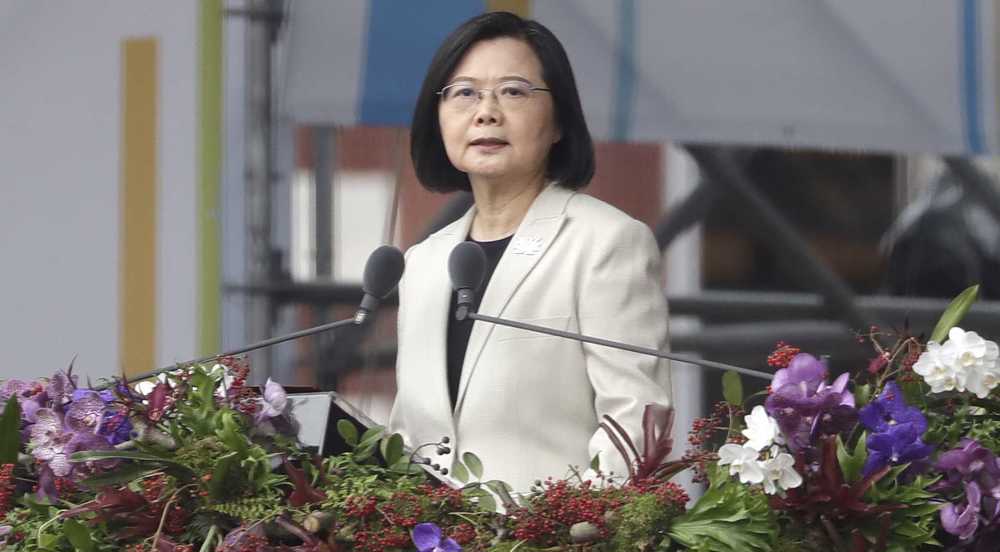
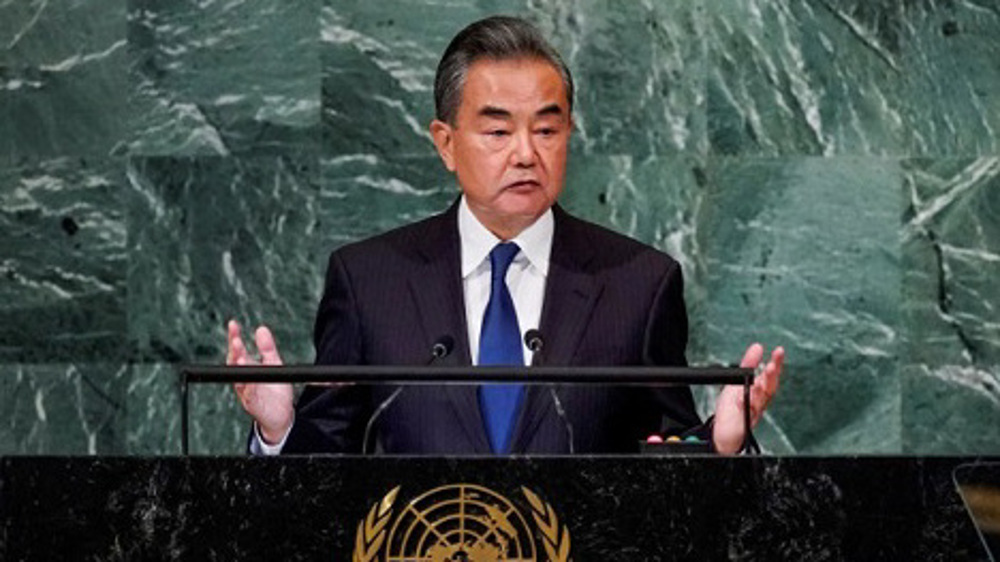
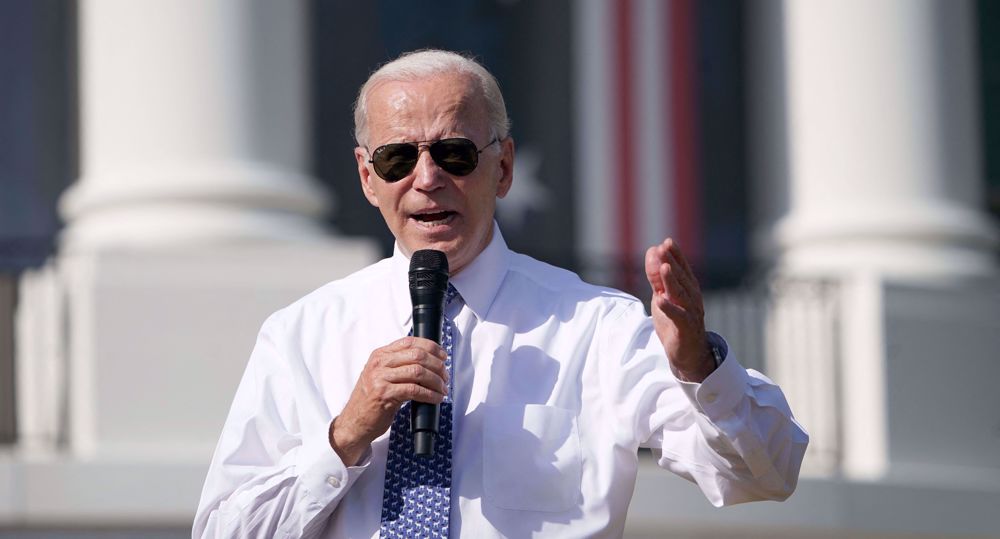
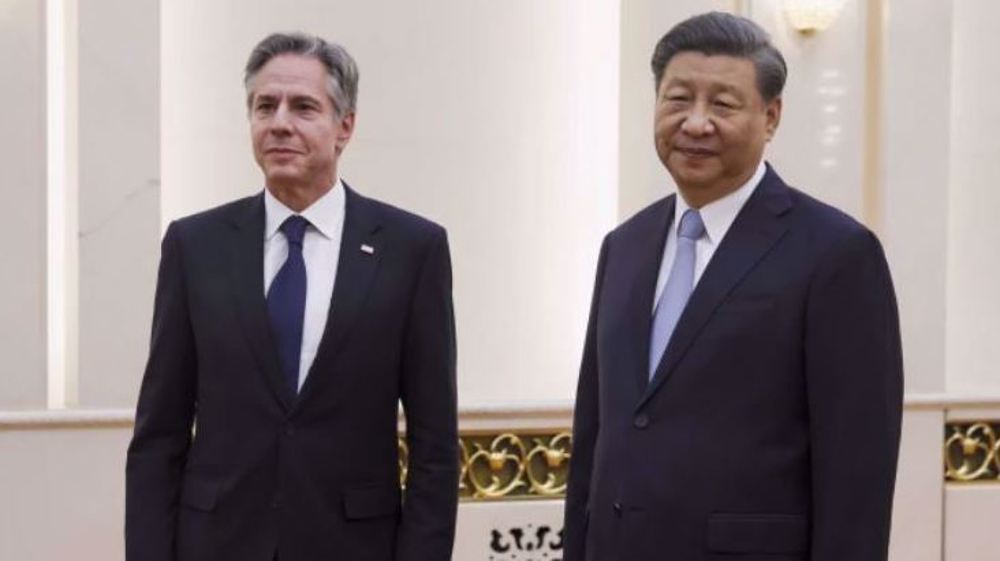
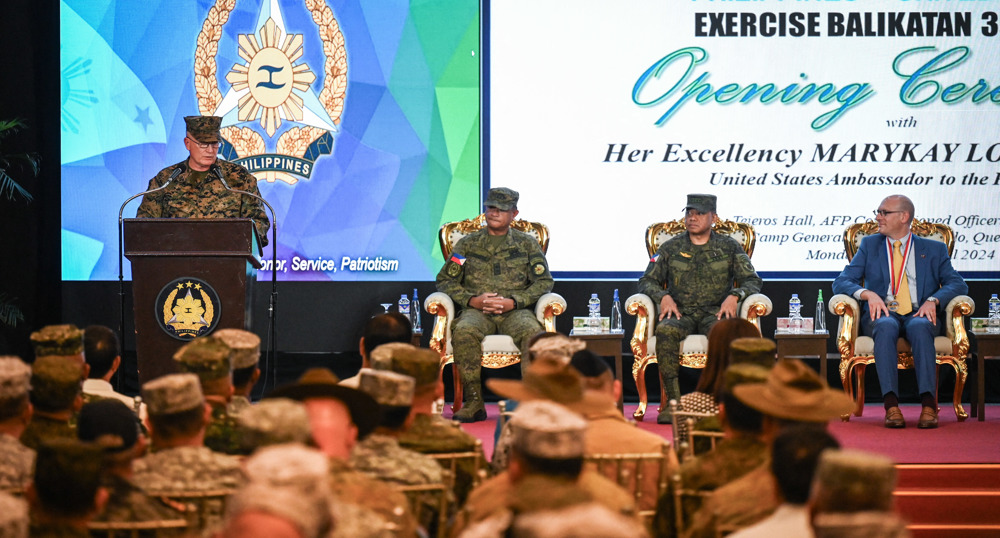
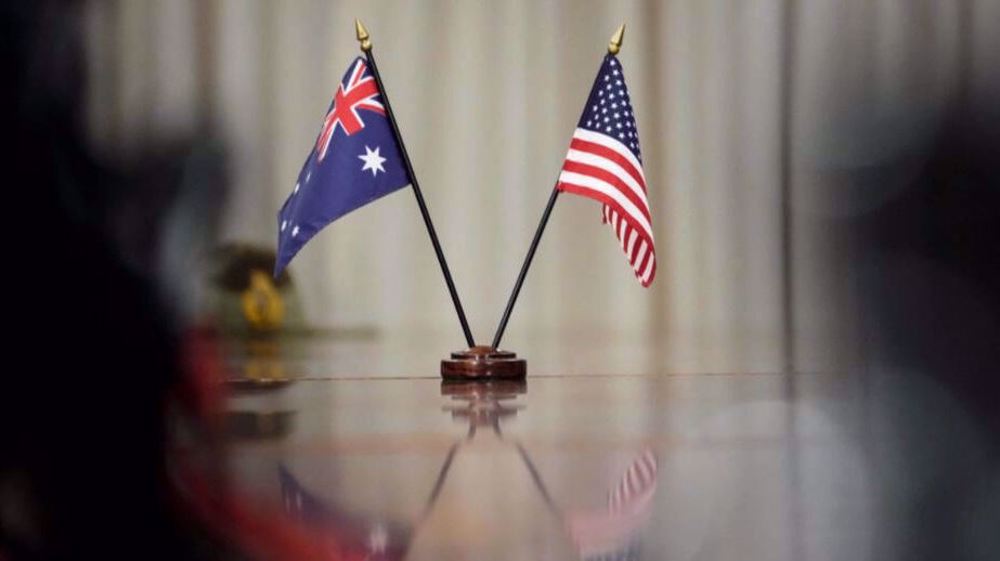



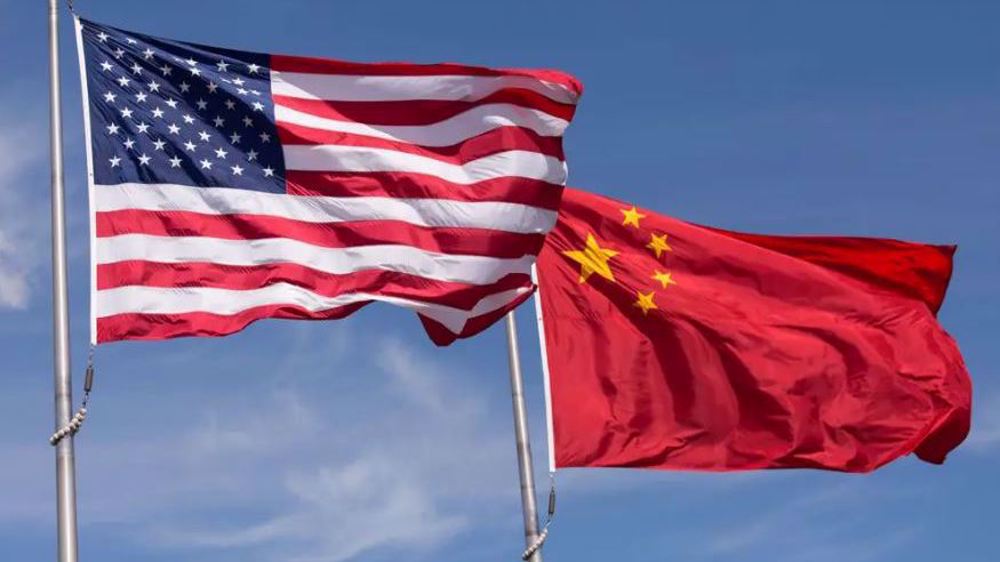
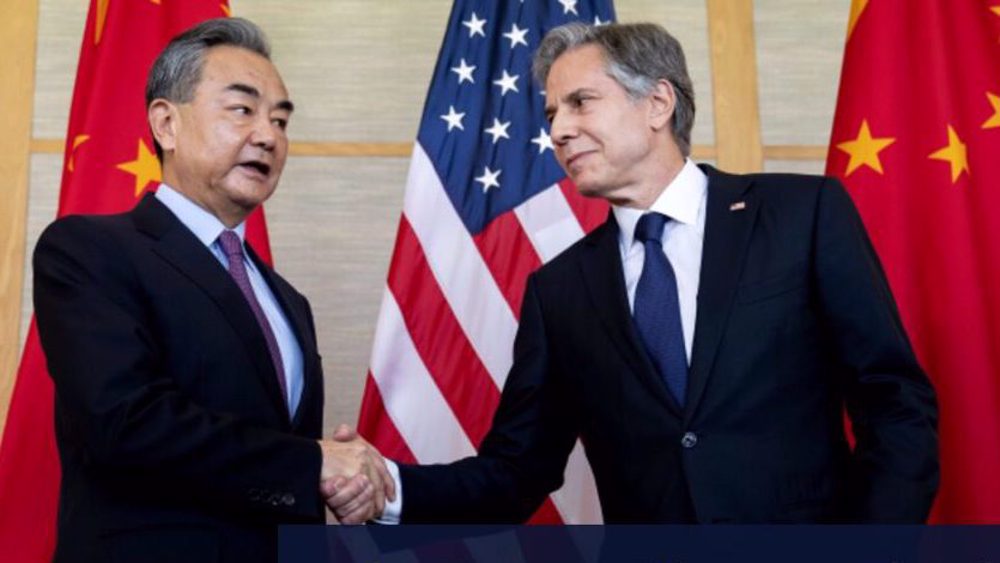
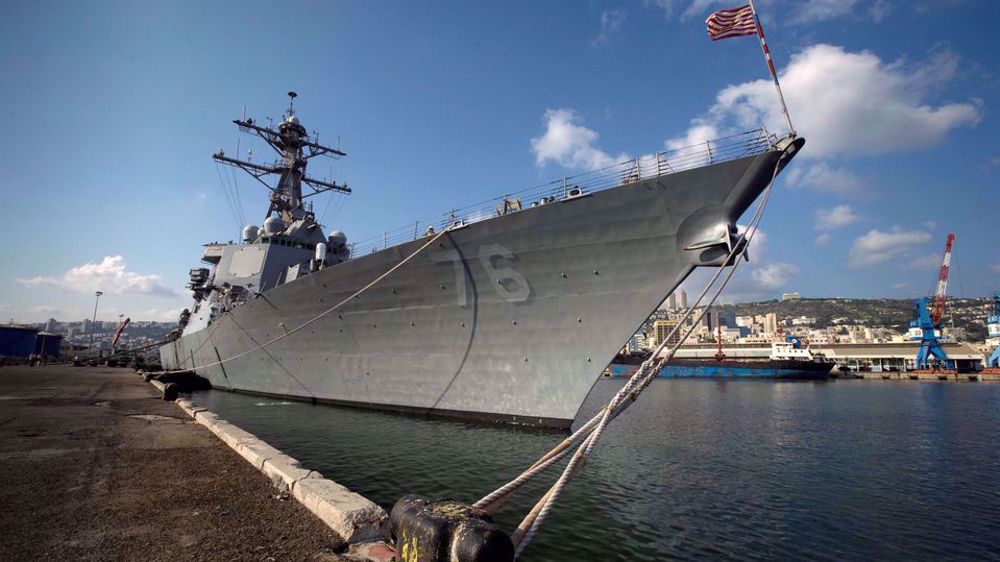

 This makes it easy to access the Press TV website
This makes it easy to access the Press TV website